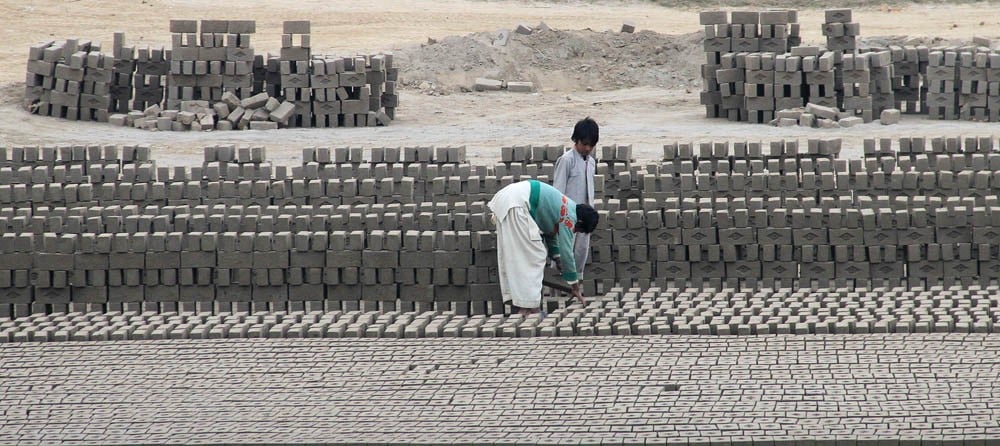
Regulatory authorities are geared toward ensuring efficiency and transparency of brick kilns but fail to address human rights concerns

Federal and provincial government departments are the major buyers of bricks. The rights groups have been lobbying that the government should make ethical consideration imperative while buying bricks for public sector procurement. They say that government departments should not buy from kilns which are not registered with the provincial governments, where workers are not being paid minimum wages or where children are forced to make bricks.
Public procurement by federal government is governed by Public Procurement Regulatory Authority Ordinance 2002 (PPRA) and Public Procurement Rules 2004. All four provincial governments have passed provincial Public Procurement Acts and Rules.
Except Balochistan, provinces have also established regulatory authorities. The provincial rules are broadly modelled on the federal rules. Essentially, they are geared toward ensuring "efficiency" and "transparency" but fail to address human rights concerns.
"This is true that public sector is the largest buyer of bricks but they do not do it directly but instead lease out contracts through tenders under PPRA rules. These rules focus on one thing and that is giving contractor to the bidder with minimum bib," says a mid-level civil servant who has served at different districts of the country at senior level. "I have been involved in awarding tenders. I do not think it is possible under current legal regime to consider such practices in public procurement process. We are short of staff and it would also lead to more corruption," he says.
A senior bureaucrat who has served as secretary communication and works at provincial governments and secretary establishment at federal level, says ethical practices are mentioned in the PPRA law but they have never been invoked. "I cannot recall that during my over three-decade career, I have ever heard that a contractor had not bought bricks from the kiln not obeying bonded labour acts or child labour acts," he says, adding that the government always goes for the minimum bidder. Such practices would increase the cost of the public sector projects. "It will definitely have a cost and we will also have to amend PPRA law and rules and regulations," he says.
The Punjab Public Procurement Regulatory Acts, 2009 mentions that "a Procuring Agency shall observe ethical standards and principles of conduct laid down by the Authority." But it does not define ethical standards. "I heard it from you for the first time that there is a clause of ethical consideration in Punjab’s act," says the mid-level bureaucrat who is appointed at an important post at Lahore. "There is no prohibition on sourcing material from establishments that violate workers’ rights."
Adnan Sattar, an author and researcher, says owners are allowed to operate their exploitative regimes in a totally risk-free zone. "As you know, much that goes on in the name of public works and services-construction of footpaths, building of schools, etc., relies heavily on bricks obtained from local kilns. So, we were thinking if we could introduce the idea of using public procurement law for social objectives and also tap into other major actors in the supply chain," he says.
"It is true that having a legal provision does not necessarily mean things will improve on the ground, but it’s better, in my opinion, than having a free-for-all environment. Perhaps, lawyers, media, parliamentarian and courts could seize upon legal provisions requiring ethical procurement, i.e., from child labour and bonded labour free kilns, at the very least," he says.
Experts on public procurement process say that under the PPRA rules no contractor or party can qualify for the bid if it does not work under the law of the land. "If our constitution forbids child labour and bonded labour and the contractors of public department buy bricks from establishments which do not respect the law of land, their contracts can be terminated without amending PPRA act or rules," says Adil Gillani of Transparency International, Pakistan chapter.
"Cost becomes irrelevant when it comes to implementation of constitution and law. I think the Supreme Court is the best forum to approach for explanation of PPRA act for ethical considerations," he says.